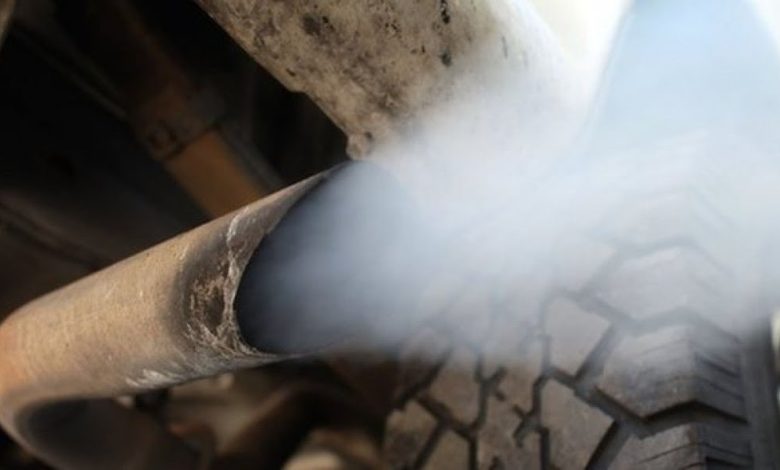UN Calls For Clean Air For All, As Nigerians Face Air pollution

Lagos, Nigeria’s most populous city and economic capital, is known for its “go-slow” (traffic snarl) as commuters and goods patiently move at snail speed to their destinations.
Apart from the frustrating vehicular traffic jams, emissions from vehicles increase air pollution and risk to public health.
A World Bank study, the Cost of Air Pollution in Lagos, estimated that air pollution caused more than 11,200 premature deaths in Lagos and losses of 2.1 billion dollars in 2018, representing about 2.1 per cent of the state GDP.
In December, 2016, Nigeria was among five countries in West Africa that pledged to stop importing dirty fuel used for vehicles and power generators, a move the UN said would help more than 250 million people breathe safer and cleaner air.
A recent report by Stakeholder Democracy Network revealed that international dealers were exporting low-grade dirty fuel to Nigeria.
In addition, hundreds of small-scale artisanal refineries were producing illegal fuel from oil stolen from the network of oil pipelines located in the creaks of the Niger Delta, the group noted.
On April 19, 2018, activists and some residents of Port Harcourt in oil-producing Rivers State, staged a peaceful #StopTheSoot protest to highlight growing concern with dense clouds of choking black soot caused by incomplete combustion of hydrocarbons.
Other sources of air pollution in Nigeria include smoke from open burning of residential waste, generators, and industrial activities.
The 2018 World air quality report ranked Nigeria as the 10th most polluted country in the world, with an estimated average PM2.5 concentration of 44.8 micrograms per cubic meter air (μg/m3).
In Nigeria, air pollution is largely due to poor environmental regulations, the lack of planning and inadequate environmental awareness among Nigerians, said Kingsley Adindu, Head of operations, Share Your Self.
Adindu added that the National Environmental Standards and Regulations Enforcement Agency needed to enforce environmental regulations and standards, including control of vehicular emissions from petrol and diesel engines as well as quality petroleum products imported into the country and open burning of waste.
On December 19, 2019, the UN General Assembly designated September 7 as the International Day of Clean Air for blue skies to raise public awareness on the importance of improving air quality and tackling air pollution.
“Around the world, nine out of every 10 people breathe unclean air. Air pollution contributes to heart disease, strokes, lung cancer and other respiratory diseases.
“It causes an estimated seven million premature deaths every year, predominantly in low- and middle-income countries. Air pollution also threatens the economy, food security and the environment,” said UN Secretary-General António Guterres in a statement shared on the UN website
The World Health Organisation, Director-General Dr Tedros Adhanom Ghebreyesus called on the world to rethink how societies, cities, transportation, food and energy are organised. Against climate change, air pollution, social and economic inequalities and the ongoing COVID-19 pandemic.
“As we stand at this pivotal crossroads, let’s make the choice for clean air and blue skies. It is within our reach.”
“Tackling illegal refineries, gas flaring and planting of trees in urban areas to absorb pollutants are important,” Adindu said, adding that curbing air pollution has a dual impact of improving public well-being and mitigating the impact of climate change.
Support Our Journalism
There are millions of ordinary people affected by conflict in Africa whose stories are missing in the mainstream media. HumAngle is determined to tell those challenging and under-reported stories, hoping that the people impacted by these conflicts will find the safety and security they deserve.
To ensure that we continue to provide public service coverage, we have a small favour to ask you. We want you to be part of our journalistic endeavour by contributing a token to us.
Your donation will further promote a robust, free, and independent media.
Donate HereStay Closer To The Stories That Matter




